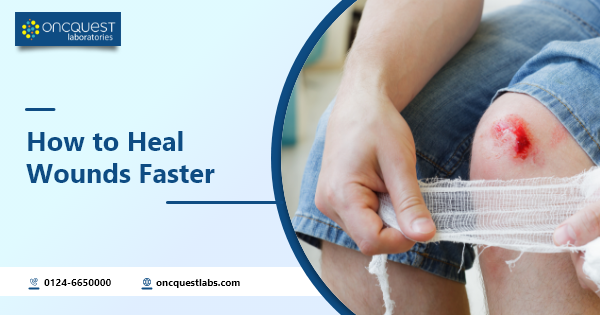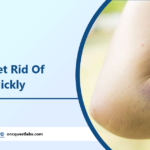Wounds are an inevitable part of life, from the minor scrapes we get in our day-to-day activities to the more significant injuries we encounter. Our bodies possess an incredible innate ability to heal, but there are ways to support and expedite this natural process. In this blog, we will delve into the science and practical tips that can help you heal wounds faster. Whether you’re looking to speed up recovery after surgery, aid in the healing of a pesky paper cut, or simply want to better understand the body’s incredible regenerative capabilities, this guide is here to offer valuable insights and advice. So, let’s journey into the world of wound healing and discover how to harness the body’s own healing powers for quicker recovery.
Contents
How to heal deep wounds faster
Before we talk about how to help deep wounds heal faster, it’s vital to know that deep wounds can be very serious. They can hurt many layers of your skin, tissues, and even your bones. When you have a deep wound, it’s really important to see a doctor right away. They can check how bad it is, stop any bleeding, and make sure it doesn’t get infected. After you’ve seen a doctor, there are some things you can do to help the healing process go faster. But remember, these steps should go along with what your doctor tells you to do. Always listen to your doctor for the best results.
1. Keep It Clean
The first and most crucial step in wound care is cleanliness. Wash the wound gently with mild soap and water. This helps remove dirt and bacteria that can impede the healing process. Pat the area dry with a clean cloth or sterile gauze.
2. Use Antiseptics Sparingly
While antiseptics like hydrogen peroxide and alcohol can be helpful, they should be used sparingly. Overusing them can harm healthy tissue. Consult a healthcare professional, especially for more significant wounds, to determine the best approach.
3. Cover and Protect
Covering the wound with a clean, sterile bandage is essential. This protects it from contamination and creates a moist environment that is conducive to healing. Change the bandage regularly to prevent infection.
4. Maintain Proper Moisture
Contrary to the old belief of letting wounds “air out,” maintaining the right level of moisture can promote faster healing. Specialised wound ointments or petroleum jelly can help create the ideal healing environment.
5. Nourish Your Body
Your body requires essential nutrients to repair itself. A diet rich in vitamins A and C, zinc, and protein is vital for tissue regeneration. Staying well-hydrated also supports the body’s healing processes.
6. Manage Underlying Health Conditions
Chronic conditions like diabetes can slow down the healing process. Managing these conditions effectively, particularly blood sugar levels, is essential to support your body’s natural ability to heal.
7. Quit Smoking
Smoking has a detrimental effect on wound healing. Nicotine restricts blood flow and oxygen delivery to tissues, which can significantly delay the healing process. Quitting smoking or seeking support to do so is a significant step.
8. Get Adequate Rest
Rest is critical for the body’s healing mechanisms to function optimally. Ensure you get enough sleep and avoid putting excessive strain on the wounded area. Rest promotes the body’s regenerative processes.
9. Controlled Activity
While rest is vital, controlled movement can help stimulate healing by improving blood circulation. Consult with a healthcare professional to determine the appropriate level of activity for your specific wound.
10. Seek Professional Advice
For deeper or slow-healing wounds, it’s essential to consult a healthcare professional. They can offer specialised care, recommend treatments such as antibiotics or specialised dressings, and closely monitor the healing progress.
How to heal deep wounds faster
Healing wounds naturally involves using various remedies and practices that support your body’s own regenerative processes. Here are some natural ways to help wounds heal faster:
1.Honey: Honey has natural antibacterial properties and can create a protective barrier over the wound. Apply a small amount of raw, unprocessed honey to the wound, cover it with a clean bandage, and change it regularly.
2. Aloe Vera: Aloe vera gel is known for its soothing and healing properties. Apply a thin layer of aloe vera gel to the wound to keep it moist and promote healing.
3. Turmeric: Turmeric contains curcumin, which has anti-inflammatory and antioxidant properties. You can make a paste by mixing turmeric with water and apply it to the wound. Be cautious, as turmeric can stain the skin.
4. Coconut Oil: Coconut oil has antimicrobial properties and can help keep the wound moist. Apply a thin layer to the wound to promote healing.
5. Essential Oils: Some essential oils, such as lavender and tea tree oil, have antibacterial properties. Dilute these oils with a carrier oil (like coconut or olive oil) and apply sparingly to the wound.
6. Proper Nutrition: Eating a balanced diet rich in vitamins and minerals, particularly vitamin C and zinc, can provide your body with the nutrients it needs for effective wound healing.
7. Proper Bandaging: Make sure to cover the wound with a clean, sterile bandage to protect it from contaminants and maintain a moist environment. Change the bandage regularly.
Remember, these natural remedies can complement conventional wound care, but they should not replace professional medical advice. If you have concerns about a wound or if it’s not healing properly, consult a healthcare provider for the best course of action.
Conclusion
Wound healing is a dynamic and individualised process, but you can help your body along with these strategies. While the body has an impressive ability to repair itself, following these steps can accelerate healing and reduce the risk of complications. If you have concerns about a wound, don’t hesitate to seek medical advice to ensure proper care and optimal healing. If you have a severe wound and your doctor advises you to take a blood test, do not delay; book a lab test at Oncquest.
Frequently asked Questions
Q1: How do you heal a wound faster naturally?
A1: Healing wounds naturally involves a combination of proper wound care, nutrition, and lifestyle choices. First, ensure the wound is clean by gently washing it with mild soap and water, then keeping it covered with a sterile dressing. A diet rich in vitamins C and E, zinc, and protein can support the body’s natural healing processes. Hydration is also crucial for tissue repair. Additionally, avoid smoking and excessive alcohol consumption, as they can impede healing. Topical treatments like aloe vera gel or honey have been known to promote wound healing. Lastly, getting enough rest and managing stress is important, as a well-rested and stress-free body is more efficient at repairing itself. Remember, consult with a healthcare professional for severe wounds or if healing progresses slowly.
Q2: Do wounds heal faster covered or uncovered?
A2: In general, wounds tend to heal faster when they are covered. Covering a wound with a sterile bandage or dressing provides a protective barrier that helps prevent infection and keeps the wound moist, creating an ideal environment for the body’s natural healing processes. It also shields the wound from external contaminants and physical damage, which can slow down the healing process. However, it’s essential to change the bandage regularly and keep the wound clean to ensure proper healing. There are specific cases where certain wounds may benefit from being left uncovered, but this should be determined by a healthcare professional based on the nature and location of the wound.
Q3: What type of wound heals faster?
A3: The speed at which a wound heals depends on several factors, including the type of wound, its size, depth, and location, as well as individual factors like age, overall health, and nutrition. In general, smaller, shallow wounds in areas with good blood circulation tend to heal faster. Superficial cuts and abrasions on the skin’s surface usually heal relatively quickly. Deeper wounds, such as surgical incisions, may take longer to heal.
However, it’s important to note that the body’s natural healing process is complex and can be influenced by various factors. Proper wound care, hygiene, and maintaining a healthy lifestyle can help optimise the healing process for any type of wound. If you have concerns about a specific wound or its healing progress, it’s best to consult with a healthcare professional for personalised guidance and treatment.





